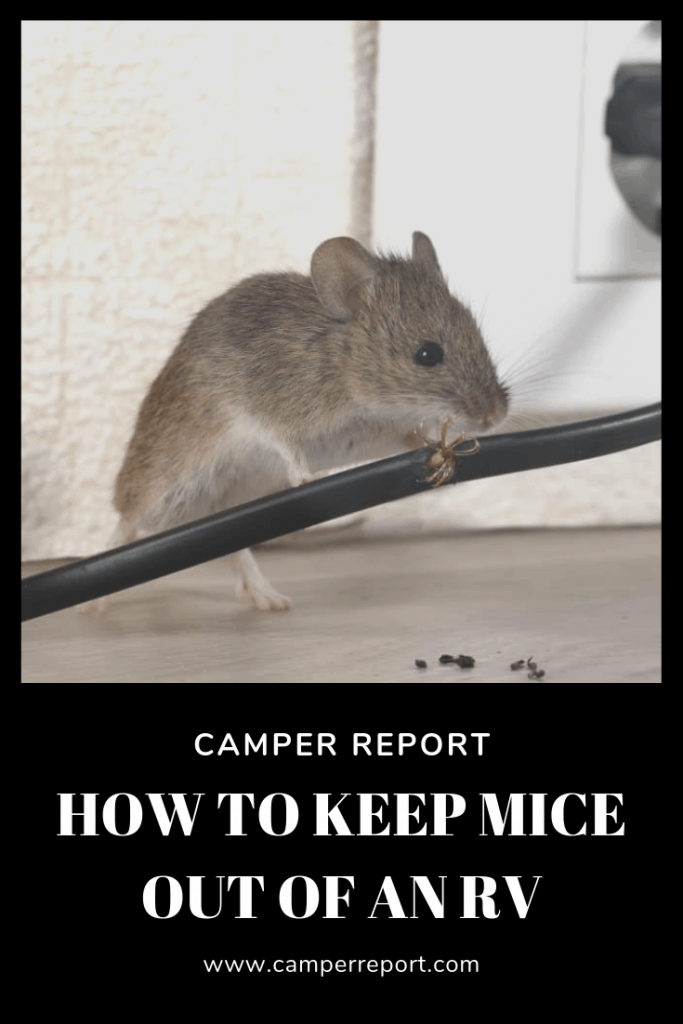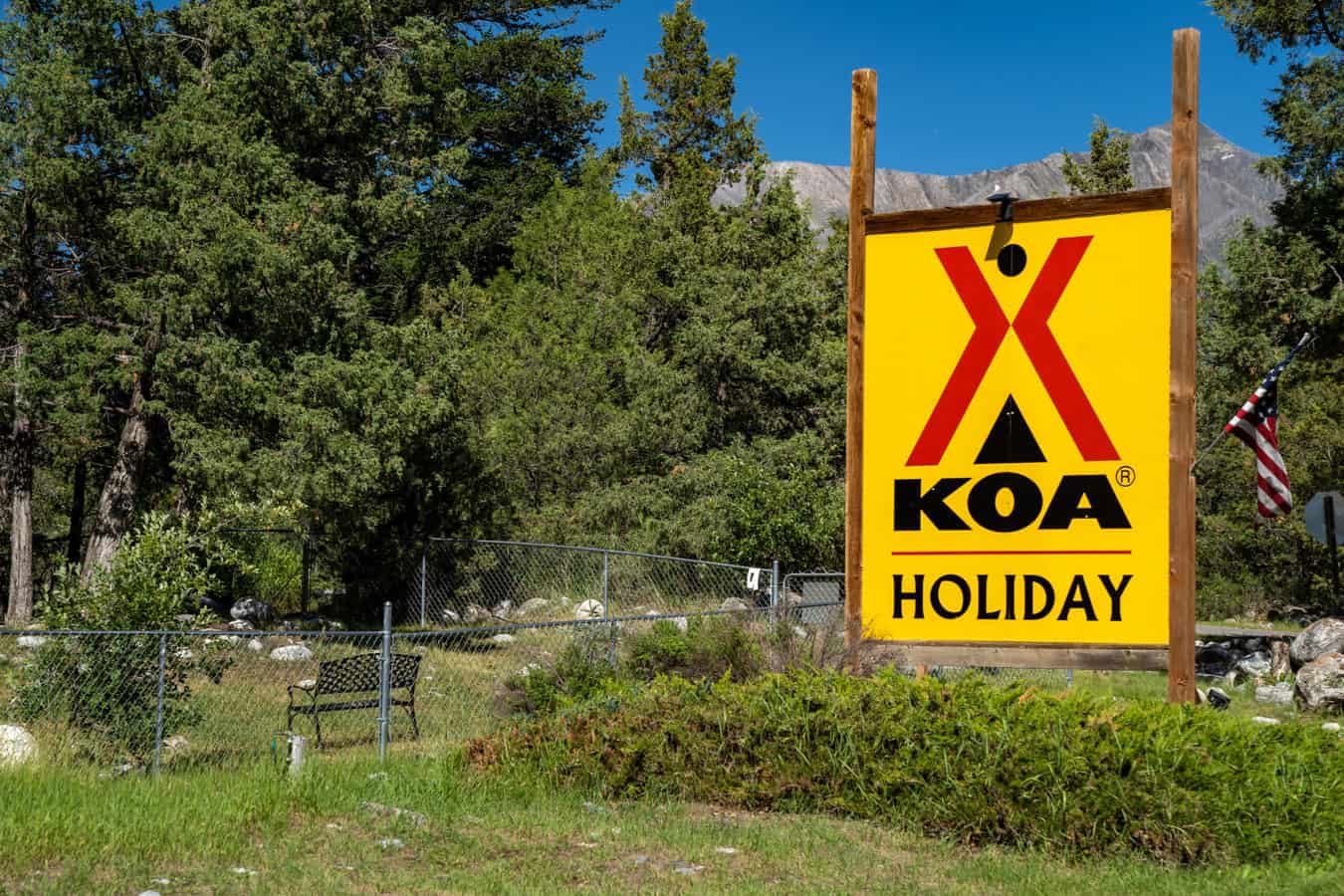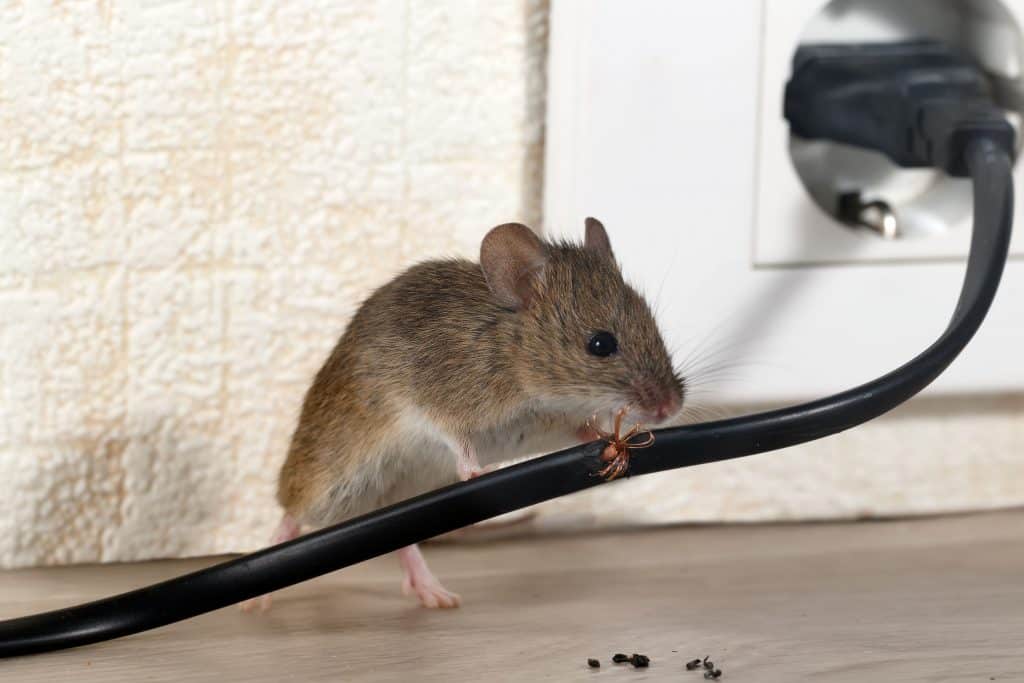
Imagine relaxing in your RV for a good night’s rest after a long day of outdoor adventures and hearing a bump somewhere in the RV, a scratching against a wall, or a tiny squeak. You don’t know where it came from or what it is, but you’re the last one to go to bed, so you have to go check it out. You get out of bed, turn on your flashlight and you see it: a pair of beady, little rodent eyes reflecting back at you. You scream, and it scurries away.
Don’t let this be your reality. Here’s some important information to know about keeping the mice out of your adventures.
Mice can be kept out of an RV by using preventative measures such as sealing any holes under your RV, in your door/ window frame, and keeping a clean space. Other methods help with mice removal, such as spring-trap mousetraps, mouse bait block, box traps, mint essential oil, and even soda.
What Attracts Mice to Your RV in the First Place
Most often, mice are drawn to warm places because the outdoors are cold and damp. That warm air drifting out of your RV is a big invitation to the mice to come and join the party. I’m sure this is the last thing you want.
These mice are not the cute, friendly ones you see in the cartoons; they will invade, multiply, and destroy your space.
Mice also are attracted by food, whether that means crumbs, leftover scents, or even things that smell like food but are inedible. Think of the mouse in Ratatouille; remember how he lifted his nose up into the air to sniff out the scent, smelled some food that was a block away and then chased it down?
They might have the same culinary skills as the mouse in the movie, but mice do have the same senses. They will smell that food you left out the night before, the crumbs left on the table, or the food that hasn’t been stored away properly. And they will come for it if they’re desperate enough, and chances are they are always desperate enough.
Once the mice have snuck their way through an open door, to the inside of your RV, the one thing that offers them a nice stay is any form of loose materials laying around. This includes unscented dryer sheets, loose papers, clothing left lying on the floor, or really just about anything that a mouse can nest in.
As soon as they have their nest and have found good sources of food and warmth in your RV, they’re all set and ready to go.
Inspecting Your RV for any Entryways for Mice
One of the greatest skills of an average mouse is being able to fit through tight spaces. They might not be as small as inspects, so they can’t fit through every tiny crack you might have in your RV, but their favored solution is to just chew through anything they can’t fit their bodies into.
The reason why this is so important to know is that those holes and cracks in your RV let out streams of warmth or scents of food. This is all a mouse needs to be interested enough in a space to check it out.
Don’t think you have any cracks or holes in your RV? Have you checked underneath your RV? The easiest ways for mice to get into your RV are typically through any sort of gaps around the sewage, electrical, and water lines at the entry points of your RV. Take a very close look at the underside of the RV, and make sure you don’t have any of these gaps.
If you do have a few gaps, have no fear, spray-foam is here! You can use the foam that will harden itself to fill the gaps and keep the pesky mice out. You can also use steel wool to stuff inside other holes because it tends to be too difficult for the mice to chew through.
Another thing you want to inspect are the rubber sealings around doors, windows, and other around your RV. These rubber sealings aren’t always the most durable and can often loosen up. Mice can also try to chew through them, if you’re not careful.
Consider replacing or reinforcing them if they seem to be getting old or look like there might be a mouse trying to get through them.
You should also consider checking out those plastic outer casings for your AC units. The plastic casing can be pretty brittle and don’t always hold up so well when you’re on the road with your RV. Check for any cracks that might be on your AC units because even the smallest crack can welcome mice into your RV.
I don’t know about you, but the last thing I would want to find on an outdoor adventure with my RV is a family of mice living inside the AC unit on top of the RV.
Now that you have inspected the RV from the outside for any cracks and holes that could be serving as secret entryways for mice, you need to inspect the inside as well.
Inspecting the Inside of your RV for Any Signs of Mice or Any Possible Attractions
Alright, no need to be embarrassed, but take a look at the inside faring of your RV. Is it relatively clean? Sure, there can be dirt and mud tracked throughout–it is an RV after all.
But are there crumbs lying around on the table and floors? Is there food sitting out that should have been put away? Are there loose papers randomly scattered throughout? Is there a bunch of dirty socks or dirty laundry lying on the floor instead of being stored somewhere?
Like I said before, don’t be embarrassed if this is what the inside of your RV looks like. This isn’t a clean-check or cleanliness contest. I’m just asking because these are all things that could be attracting the mice or serve as great nesting materials for the mice.
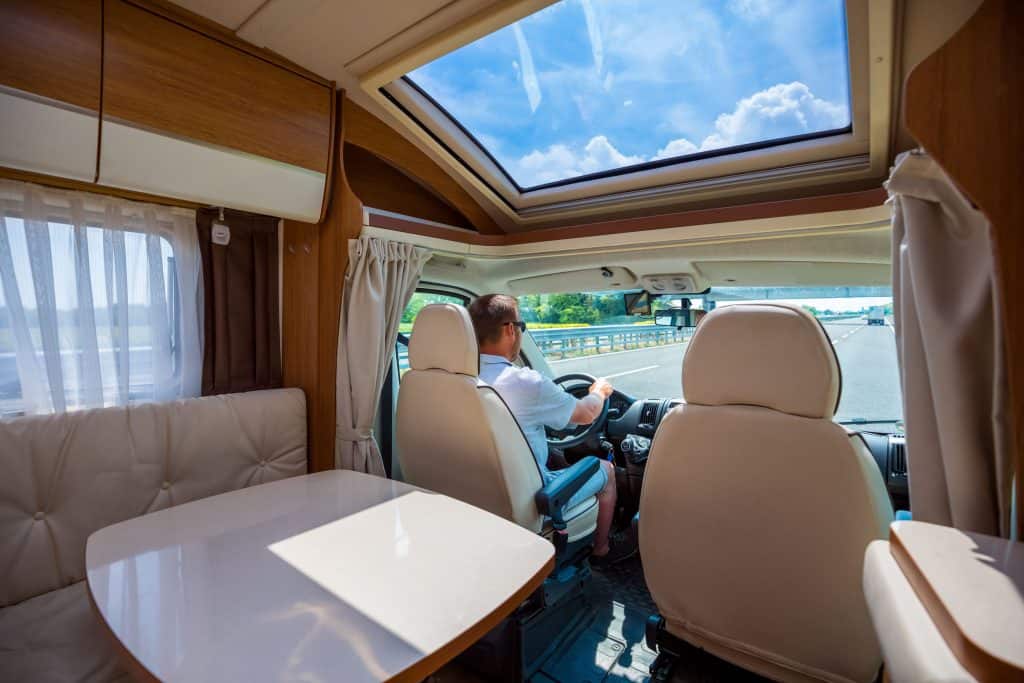
Believe it or not, a clean RV is boring and unattractive to mice, and they’re more likely to leave it alone because there’s nothing left for them to snack on or nest in. Sounds like something a mom would tell to a messy little kid to convince them to clean up their room, right? Except, in this case, it’s true.
Preventative Measures You Can Take to Make Sure Mice Don’t Find A Home Inside Your RV
If you have clothing laying around, find a safe place to store it where the mice will not be able to get to it. You can also ensure that mice won’t be making a nest out of your favorite shirts and socks by using scented detergent and freshening spray. Mice can’t handle strong perfume-scents and tend to stay away from them.
This also comes in handy because you can use the scented dryer sheets to put into some of the questionable holes inside your RV.
Now, if you have any of that food laying around because you have nowhere else to store it, you should really consider investing in some storage containers for your food to keep the scents out of your RV and away from those little mousy noses.
You should also be sure to clean up after cooking and having meals. This means scrubbing those dishes, wiping down those tables, and sweeping the floor. Sounds like a lot of cleaning that you don’t want to be doing on a camping trip, right? But at least you’ll be keeping the mice out of your adventures.
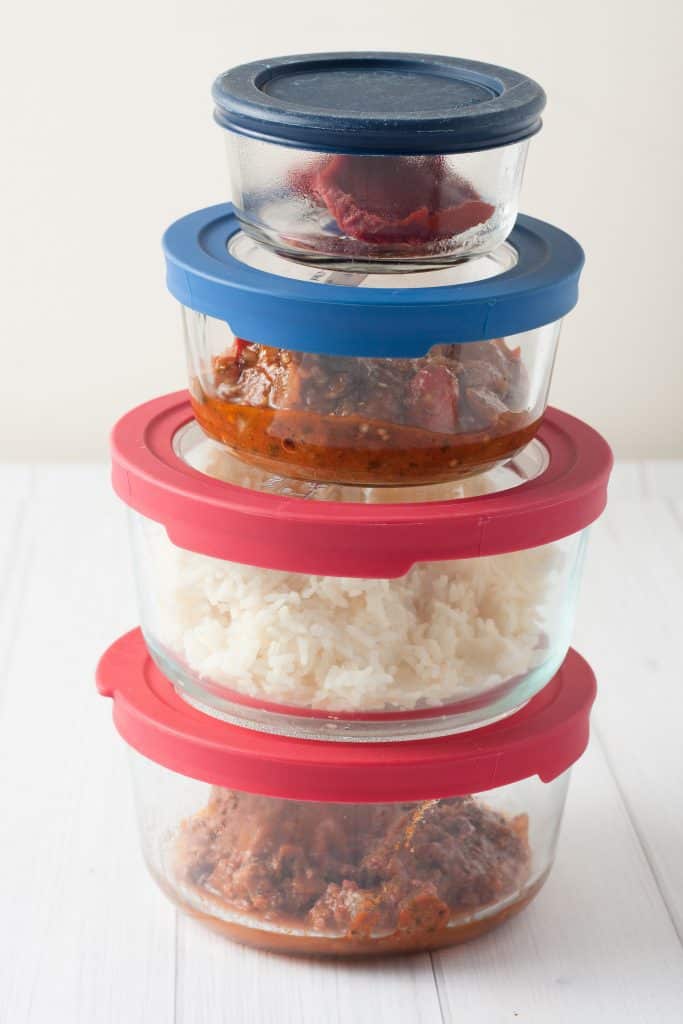
Added bonus: your RV will be so much cleaner and accessible now. Won’t that be nice? Once you keep up on the cleaning for a bit, it will become a habit and will no longer feel like you’re doing all this work only for the mice.
One other thing you want to keep an eye out for when you’re inspecting the inside of the RV and making the mice don’t even have the desire to come in: cracks, scratches, and holes.
Don’t worry; there are ways to fill up the holes and fix the cracks with foaming sprays and other sealants.
Did you find spots that have been chewed through or any other signs of mice? Don’t be too quick to panic. Your RV adventures are not ruined forever. There are some easy, all-natural ways to shoo those pesky mice away without having to use any of those nasty chemicals, poisons, or mouse traps.
Evicting the Mouse and Keeping Them Out: Going All-Natural
I don’t know about you, but I really do not like mice. I guess the mice in the cartoons are okay, but all other mice are not welcome anywhere near me, and if I see one scurrying by, I will scream.
But… I also don’t like setting mouse traps because then I set them in places I’ll forget about, and it doesn’t take long for the entire area to reek of decaying mouse.
In case you’re wondering, mice like to multiply once they find a nice place to stay, and they do it pretty fast. One day, you’ll have just one mouse, and the next week, you’ll have a dozen.
I’m also not a big fan of using mouse poison or any of those other chemicals because they can also be harmful to curious little kids or pets that you do not want to poison or evict any time soon.
Now that we’ve gotten rid of the mousetraps and poisons, let’s get into the more natural options.
Like I already said, mice aren’t big fans of fresh scents, including mint. You could try using a mint-scented cleaner for your RV or just drop a bit of mint essential oil into your cleaner, and not only will it keep your RV smelling fresh, but it will keep the mice away.
You could also consider crushing up some peppermints and laying the powder around mice nesting areas and holes. Another option is to bring some potted mint plants on your trips to keep both inside and outside your RV to keep the mice away.
Mice also can’t handle the carbonation in soda as well as humans can. The gas will just keep building up inside them until it becomes too late–if you know what I mean. It’s a bit of a stickier solution because it could potentially spill out onto the floor, but you could pour a carbonated drink into a small bowl or shallow dish and leave it by the nesting places and mouse holes.
And then of course, there are cats, but I don’t think we need to get into that at this time.
Any of these natural solutions will work as mouse repellent, and should help to keep the mice away or scare them away, if they are already inside your RV. Although, there are also the not-so-natural ways to repel and evict mice, but you will have to be careful if you have any young children or pets running around your RV.
The Not-So-Natural Way To Evict Mice from Your RV
So you read through my list of natural solutions for evicting or repelling mice, and you’re not a firm believer in the all-natural? It’s okay. I’m not offended. I understand, and I’ll even give you some other ways on how to poison and kill off those pesky mice.
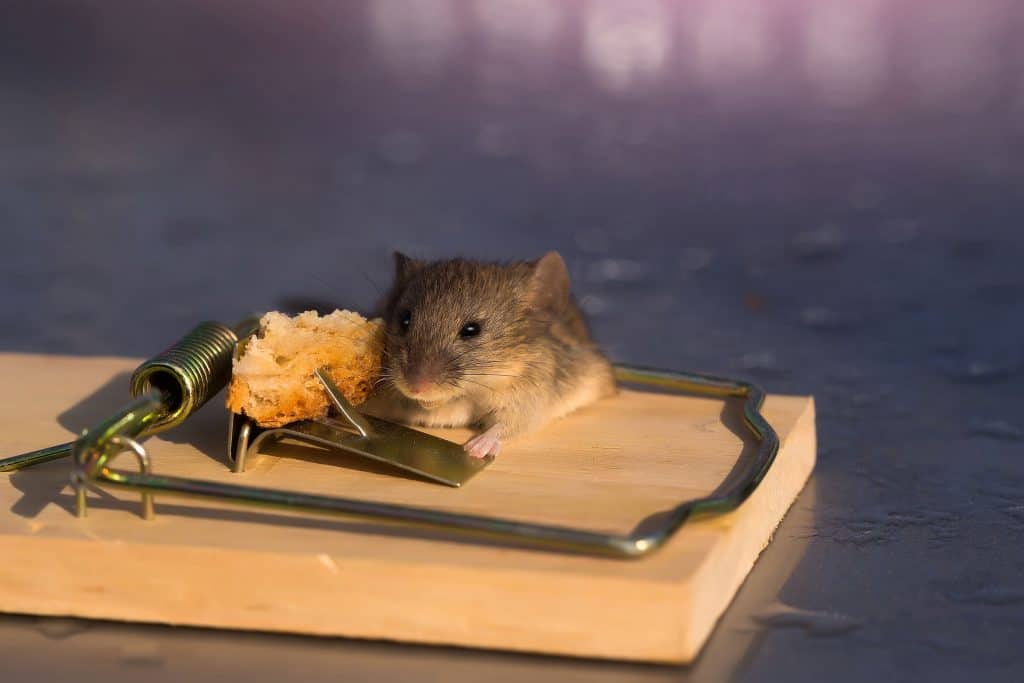
- Mouse Bait Block and Station: This is a controlled form of mouse poison that comes in the form of a solid block for mice to nibble on. It can even come in peanut butter flavor to be more appealing to the mice. It’s more contained than pouring mouse poison everywhere for your pets to get into, and you can even get it in a bait station to keep pets and children out.
- Spring-trap Mousetraps: I feel like these are probably self-explanatory, but basically you put some sort of bait like cheese or peanut butter on the tip, the mouse creeps up, and…SNAP! Pretty basic, and you need to watch your fingers when setting it, but they get the job done.
- Box Traps: Similar to the bait station that I mentioned earlier, this is a box that has the bait inside, but unlike the bait station, once the mouse goes into the box, it closes and traps the mouse inside. This is probably one of the easier ways to kill off your mice because you don’t have to go searching for them once they die because they cannot escape.
Of course, any of these traps and poisons have their faults. Mainly, a mouse that has been poisoned and not trapped will hide and nest until the poison works its way through the mouse’s system, and you’ll be left to following your nose to find the dead mouse. Then you’ll just have to figure out how to get it out of its tiny, little hiding spot.
On the bright side, though, if you do have a mouse that escapes with the poison and dies in its own little hiding place that you can’t get to, the stench will go away after about ten days. But hopefully, with all of the preventative tricks that I’ve given you, you won’t have to deal with any of that.

